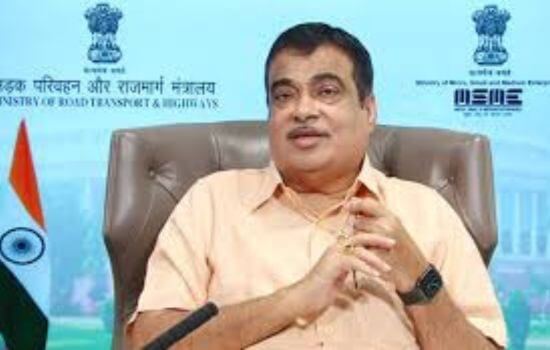#TransportMinisterResign: Why India’s Gig Workers and Public Are Demanding Accountability
Below is a detailed, 2000-word news article addressing the trending hashtag #TransportMinisterResign, focusing on the reasons behind its popularity, particularly in relation to India’s Transport Minister Nitin Gadkari, gig worker protests, and broader transport sector issues. The article incorporates recent developments, public sentiment from social media, and contextual analysis, while critically examining the narrative and avoiding speculative or unverified claims.
#TransportMinisterResign: Why India’s Gig Workers and Public Are Demanding Accountability
New Delhi, June 27, 2025 – The hashtag #TransportMinisterResign has surged to prominence across social media platforms in India, particularly on X, where thousands of posts reflect growing public frustration with Union Minister for Road Transport and Highways, Nitin Gadkari. The online movement, fueled by grievances from gig workers, transporters, and citizens, underscores a broader discontent with transport policies, infrastructure challenges, and perceived inaction on critical issues. At the heart of the trend are protests by gig workers—primarily bike taxi riders and delivery workers—who are demanding better policies, job security, and empathy from the government. This article delves into the reasons behind the hashtag’s rise, the role of gig workers in this movement, and the broader context of India’s transport sector under Gadkari’s leadership.
The Spark: Gig Workers’ Protests TransportMinister
The #TransportMinisterResign hashtag gained traction in late June 2025, with posts on X highlighting the plight of gig workers in India’s transport sector. Gig workers, who form the backbone of the country’s booming app-based economy, include drivers for ride-hailing platforms like Uber and Ola, as well as delivery workers for services like Zomato, Swiggy, and Blinkit. These workers operate as independent contractors, often without the benefits, job security, or protections afforded to traditional employees. Their grievances have crystallized into a vocal demand for accountability from the Ministry of Road Transport and Highways, which oversees policies affecting their livelihoods.
A post on X from June 27, 2025, by user
@Vinesh123_ captured the sentiment driving the hashtag: “Thousands of gig workers are on the streets. Not one word from
@RLR_BTM. No empathy. No plan. No leadership. #TransportMinisterResign”. Another user,
@Iamverma_, pointed to a specific policy failure: “5 years. No bike taxi policy. 1 decision. Thousands jobless. Zero accountability. Why is
@RLR_BTM still in office? #TransportMinisterResign”. These posts suggest that a lack of clear regulations for bike taxis—a critical income source for many gig workers—has left thousands unemployed or struggling, with no apparent response from the ministry.
While the exact trigger for the recent protests remains unclear from available sources, the sentiment on X points to a court ruling or policy decision that may have disrupted bike taxi operations. For instance,
@shaileshkayal_ wrote, “Thousands of bike taxi riders are out of work. The court spoke. Citizens protested. But
@RLR_BTM still refuses to take responsibility. This silence is not leadership—it’s abandonment”. This suggests a judicial intervention, possibly in a state like Karnataka, where bike taxi services have faced regulatory challenges in the past due to conflicts with local transport authorities and traditional taxi unions.
The absence of a comprehensive national bike taxi policy has been a long-standing issue. Gig workers, particularly those operating two-wheelers, face inconsistent regulations across states, with some regions banning bike taxis outright due to safety concerns or pressure from traditional transport lobbies. This regulatory patchwork has led to job losses, fines, and uncertainty for workers who rely on platforms like Rapido or Ola for their income. The lack of dialogue from the ministry, as highlighted in posts like
@Being_Dhruv_’s—“No empathy. No plan. No leadership”—has amplified public anger, positioning Gadkari as a target for criticism despite his long tenure and reputation for infrastructure development.

Broader Context: Nitin Gadkari’s Tenure and Public Perception
Nitin Gadkari, a senior leader of the Bharatiya Janata Party (BJP) and one of India’s longest-serving transport ministers, has been lauded for his ambitious infrastructure projects. Since taking office in 2014, he has overseen the expansion of India’s national highway network, the introduction of FASTag for toll collection, and initiatives to promote sustainable transport, such as e-rickshaws and hydrogen-powered vehicles. At the ET Edge Supply Chain Fest 2025, Gadkari announced a 6% reduction in logistics costs, a step toward India’s $5 trillion economy goal, and emphasized his vision for cleaner fuels and multimodal logistics. His push for e-rickshaws, which he called his “biggest achievement” in 11 years, reportedly freed 15 million people from exploitative manual labor.
However, recent developments have cast a shadow over these accomplishments. On June 26, 2025, Gadkari faced backlash over media reports claiming that two-wheelers would be subject to toll taxes starting July 15. He swiftly debunked these claims, calling them “misleading and sensational” and clarifying that two-wheelers would remain exempt from tolls. The National Highways Authority of India (NHAI) echoed this, labeling the reports “fake news”. While Gadkari’s response quelled some concerns, it also highlighted public sensitivity to transport-related policies and the rapid spread of misinformation, which may have fueled distrust.
Moreover, Gadkari’s ministry has faced criticism for other issues, including crumbling roads, delays in major projects like the Delhi-Mumbai Expressway, and the controversial toll-operate-transfer (TOT) model, which the government recently decided to abandon in favor of Infrastructure Investment Trusts (InvITs). A post by
@ktchandra2 on June 26, 2025, accused Gadkari of enabling a “culture of looters called toll tax” while roads deteriorate. Another user,
@Itsvikas6, criticized the lack of progress on scrappage policies and equitable toll systems, calling Gadkari’s tenure “incompetent”. These sentiments suggest that the #TransportMinisterResign hashtag is not solely about gig workers but reflects broader dissatisfaction with transport governance.
The Gig Economy and Policy Gaps
India’s gig economy has grown exponentially, with over 15 million workers engaged in platform-based jobs by 2025, according to estimates from industry reports. In the transport sector, gig workers include bike taxi riders, cab drivers, and delivery personnel who operate in a precarious environment marked by low wages, high platform commissions, and minimal social protections. Unlike traditional employees, gig workers lack access to health insurance, paid leave, or pension schemes, making them vulnerable to policy changes or economic disruptions.
The absence of a national bike taxi policy is a glaring gap. In states like Karnataka and Maharashtra, bike taxis have faced bans or restrictions due to safety concerns, licensing issues, and opposition from auto-rickshaw and taxi unions. For instance, a 2023 Karnataka High Court ruling temporarily halted bike taxi operations, citing non-compliance with the Motor Vehicles Act, leaving thousands of riders jobless. While recent sources do not confirm a specific court ruling in June 2025, posts on X suggest a similar event may have reignited protests. The lack of a unified regulatory framework has left gig workers in limbo, unable to operate legally in some regions while facing harassment or fines in others.
Gig workers’ demands include formal recognition as employees, minimum wage guarantees, and protections against arbitrary platform policies, such as sudden fare cuts or account suspensions. The #TransportMinisterResign hashtag reflects their frustration with the ministry’s failure to address these issues. Posts like
@TiwariBetu4944’s—“The courts have spoken. The public has protested. The media has reported. Yet, the transport minister remains unmoved”—suggest that Gadkari’s silence or perceived inaction has alienated a significant section of the workforce.
Infrastructure and Transport Sector Challenges
Beyond gig workers, the #TransportMinisterResign trend is fueled by broader transport sector grievances. On June 26, 2025, heavy goods transporters and bus operators in Mumbai announced an indefinite strike starting July 1, citing excessive penalties and e-challans that disrupt their schedules. This strike, supported by tourist bus operators, threatens to disrupt goods and passenger transport, further highlighting systemic issues under Gadkari’s purview.
Infrastructure delays have also drawn criticism. The Mumbai-Ahmedabad highway and Mumbai-Goa road projects have faced delays, with users like
@ret2indnri calling for Gadkari’s resignation over “poor performance”. A particularly embarrassing incident occurred on June 24, 2025, when Gadkari’s convoy was stuck in a traffic jam in Pune, forcing him to cancel an inspection of a proposed traffic decongestion project. This irony was not lost on the public, with social media amplifying the incident as evidence of mismanagement.
The toll system has been another flashpoint. While Gadkari introduced an annual FASTag pass for four-wheelers at ₹3,000, aimed at reducing costs and congestion, the system has been criticized for inequities. For instance,
@Itsvikas6 noted that vehicles of vastly different values pay the same toll, calling it unfair. The decision to end the TOT model, which allowed private entities to collect tolls, was seen as a positive step by some, but it also raised concerns among investors, potentially affecting future infrastructure funding.
Gadkari’s Defense and Achievements
Despite the criticism, Gadkari has defended his record, emphasizing infrastructure growth and innovation. At the ET Edge Supply Chain Fest 2025, he highlighted a 6% reduction in logistics costs and ₹600 crore hydrogen highway pilot projects. His push for e-rickshaws has been praised for reducing exploitative labor, and the FASTag system has streamlined toll collection, with plans to expand it into a multi-functional digital platform. Gadkari’s clarification on two-wheeler toll exemptions also demonstrated his responsiveness to public concerns, countering misinformation swiftly.
However, these achievements have not quelled the discontent among gig workers and transporters, who feel their immediate concerns remain unaddressed. The #TransportMinisterResign hashtag reflects a disconnect between Gadkari’s macro-level infrastructure goals and the micro-level struggles of workers and commuters.
The Role of Social Media in Amplifying the Trend
Social media, particularly X, has been instrumental in driving the #TransportMinisterResign hashtag. The platform’s real-time nature allows users to voice grievances, share protest updates, and mobilize support. Posts tagging opposition leaders like Rahul Gandhi and Mallikarjun Kharge suggest an attempt to politicize the issue, framing it as a failure of the ruling BJP government. However, the hashtag’s organic spread indicates genuine public frustration, not just orchestrated political campaigns.
The trend also reflects a global pattern where transport-related controversies spark social media movements. For example, in the UK, Transport Secretary Louise Haigh’s resignation in November 2024 over a fraud conviction led to similar online outrage. While Gadkari’s situation is less about personal scandal and more about policy failures, the global context shows how transport issues resonate deeply with the public.
Critical Analysis: Is Resignation Justified?
The #TransportMinisterResign hashtag raises questions about accountability versus systemic challenges. Gadkari’s tenure has undeniably transformed India’s infrastructure, with thousands of kilometers of highways built and innovations like FASTag implemented. However, the gig economy’s rapid growth has outpaced regulatory frameworks, leaving workers vulnerable. The ministry’s failure to address this gap, coupled with infrastructure delays and toll-related grievances, has fueled public anger.
Critics argue that resignation demands may oversimplify complex issues. Transport policy involves coordination with state governments, which often control local regulations like bike taxi permits. Gadkari’s ministry has also faced external challenges, such as funding constraints and legal hurdles. Yet, the perception of inaction, especially toward gig workers, has damaged his image among a vocal section of the public.
Conclusion
The #TransportMinisterResign hashtag encapsulates a moment of reckoning for India’s transport sector. Gig workers, struggling with job insecurity and regulatory ambiguity, have found a voice on social media, amplifying their demands for accountability. While Nitin Gadkari’s achievements in infrastructure are significant, the failure to address the gig economy’s challenges and broader transport grievances has sparked widespread discontent. As protests continue and the hashtag trends, the government faces pressure to deliver concrete solutions. For the latest updates, monitoring X posts and news outlets will provide real-time insights into this evolving story.
Read Also

